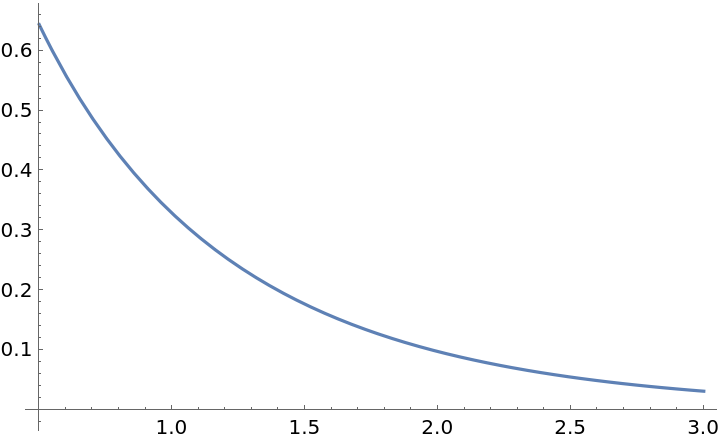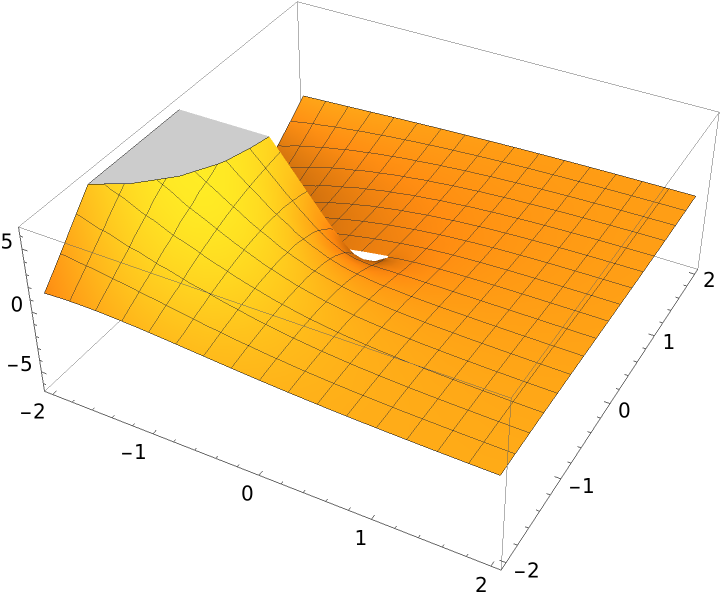Wolfram Function Repository
Instant-use add-on functions for the Wolfram Language
Function Repository Resource:
Evaluate the Bickley function
ResourceFunction["BickleyKi"][n,z] gives the Bickley function Kin(z). |
Evaluate numerically:
| In[1]:= |
| Out[1]= |
Plot Ki1(z):
| In[2]:= |
| Out[2]= |  |
Series at the origin:
| In[3]:= |
| Out[3]= |
Evaluate for complex arguments and orders:
| In[4]:= |
| Out[4]= |
Evaluate to high precision:
| In[5]:= |
| Out[5]= |
The precision of the output tracks the precision of the input:
| In[6]:= |
| Out[6]= |
BickleyKi threads elementwise over lists:
| In[7]:= |
| Out[7]= |
Plot a complex-ordered Bickley function over the complex plane:
| In[8]:= |
| Out[8]= |  |
Average probability that a neutron travels across two parallel lines separated by a distance h without a collision:
| In[9]:= |
| Out[9]= |
Compare with the integral representation:
| In[10]:= |
| Out[10]= |
Express a modified Bessel function of the second kind as a finite sum of Bickley functions:
| In[11]:= | ![With[{n = 5},
BesselK[n, z] == 1/2 Sum[(2^n Pochhammer[-n/2, k] Pochhammer[(1 - n)/2, k])/(k! Pochhammer[1 - n, k]) ResourceFunction["BickleyKi"][
2 k - n, z], {k, 0, n - 1}]] // Simplify](https://www.wolframcloud.com/obj/resourcesystem/images/86b/86b4a648-d137-43ac-aa74-e1c9b5230b30/7031f43b0a80be39.png) |
| Out[11]= |
For n=0, BickleyKi is equal to K0(z):
| In[12]:= |
| Out[12]= |
For n>0, BickleyKi is equal to an iterated integral of K0(z):
| In[13]:= |
| Out[13]= |
For n<0, BickleyKi is equal to (-1)nd-nK0(z)/dz-n:
| In[14]:= |
| Out[14]= |
Express a Bickley function of noninteger order in terms of simpler functions:
| In[15]:= |
| Out[15]= |
Compare BickleyKi with the integral definition:
| In[16]:= | ![With[{n = 5, z = 11/3, prec = 20},
{N[ResourceFunction["BickleyKi"][n, z], prec],
NIntegrate[BesselK[0, t] (t - z)^(n - 1), {t, z, Infinity}, WorkingPrecision -> prec]/Gamma[n]}]](https://www.wolframcloud.com/obj/resourcesystem/images/86b/86b4a648-d137-43ac-aa74-e1c9b5230b30/102a9b25b27d3378.png) |
| Out[16]= |
Machine precision is not sufficient to obtain the correct result:
| In[17]:= |
| Out[17]= |
Use arbitrary-precision arithmetic instead:
| In[18]:= |
| Out[18]= |
This work is licensed under a Creative Commons Attribution 4.0 International License